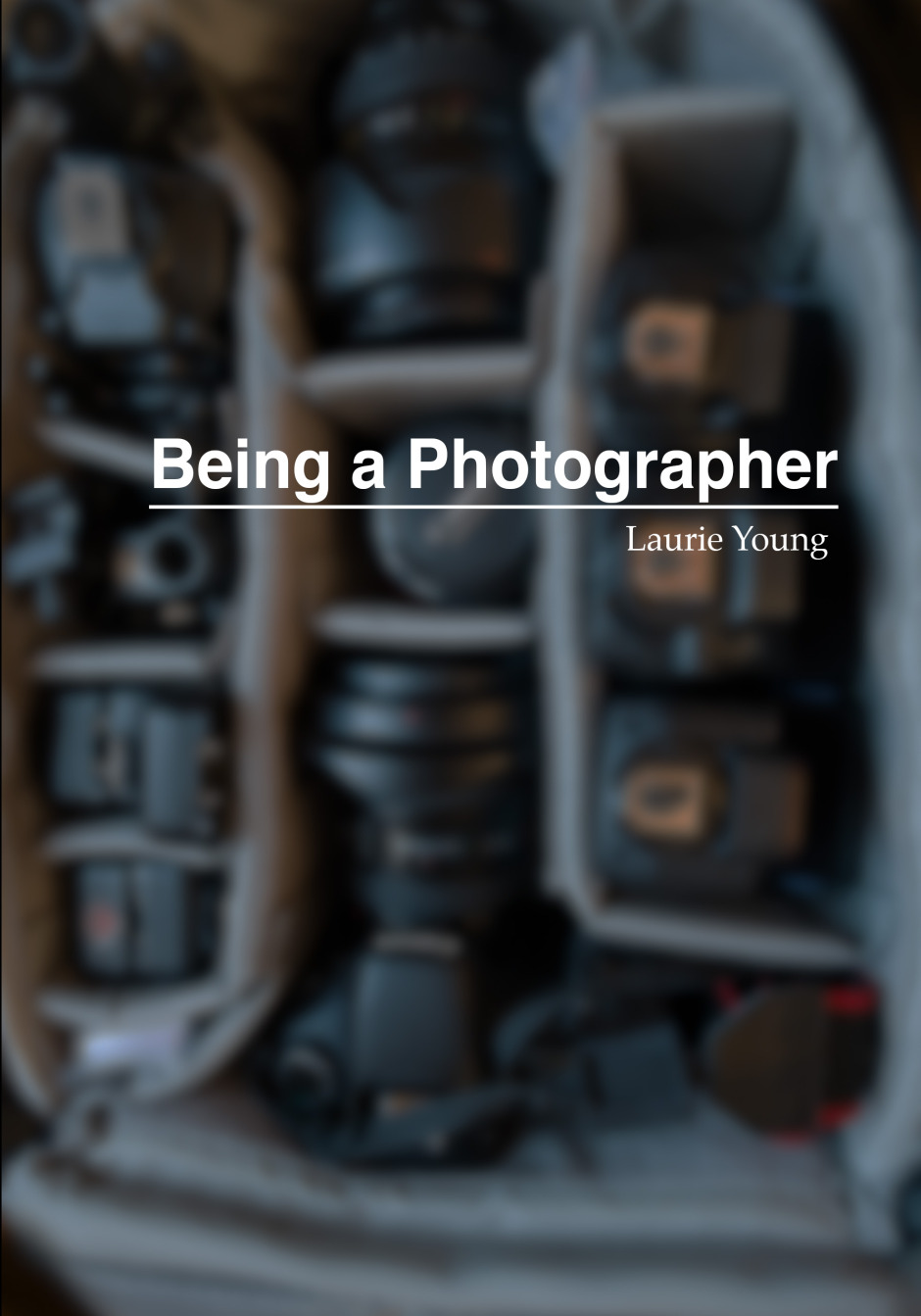How do you 'be' a photographer? This question, posed by Laurie Young in his book Being a Photographer, isn't about the technical considerations of aperture and your intimate knowledge of ISO, but rather your intent every time that you pick up a camera. For whom are you taking photos and what is it in these photos that your viewers will appreciate?

The book starts with two questions:
- If you take a photo and no one sees it, what was the point?
- If you take a photo that’s ignored by everyone who sees it, what was the point?
They're good questions. You should ask yourself them now. Why do you take photos? Whom are you expecting to look at them? Every time that you pick up your camera, what are you intending to accomplish with it, because if you take a photo to which nobody pays any attention, isn't that a waste? If that's the case it falls on you as a photographer to ask yourself 'Why would anyone look at my images?' The point of the book is that you must have intent whenever you take a photo: what impact do you want your photo to have on someone when she or he looks at it?
These two initial questions are developed into two themes that run throughout the book: first, unless you pick up your camera with a posit, there is no point in picking it up at all; and second, that your intention does not have to be the same for every photo that you take and every viewer you try to engage. In fact, being able to identify your viewers and their different expectations is part of what helps you to 'be' a photographer.
Knowing this, however, is all very well. How do you put it into practice into to make you a better photographer? The book does this by building on these two questions, introducing a series of projects, with a different audience at the heart of each. It starts with you and progresses to your family, your friends, to strangers, and finally to people whom might pay you for your work. Each project is aimed at helping you take the right photos for each of these groups of people by focusing on your intent and their expectations.
Being a Photographer isn't a long read, but it is a valuable one. It forces you to consider the relationship between you and your photos' viewers, that's bridged by your photos. By helping you to identify for whom you are taking photos and what they want from them, it helps you to take better photos, and to 'be' a photographer. The book is available in hard copy format or as a digital download from Laurie's website, Wildfalcon. Laurie's worth following on Twitter, too, where he's @lry_photo.





